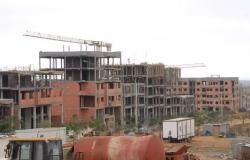In Quebec, as everywhere else in the world, the cultural community fears the imminent arrival of the government of President Donald Trump, whose clearly stated protectionist aims risk further slowing down the circulation of performing arts on the American market. In the United States, where obtaining a temporary work visa that allows artists to perform on stage is increasingly costly and hazardous, organizations are now trying to anticipate the measures that could be put in place after January 20.
“I don’t know what to expect from the arrival of the new government, but I don’t see it in a positive way,” says James Minor, vice-president of the music component of the important South by Southwest festival, which attracts tens of thousands of artists and music industry professionals to Austin, Texas. Nearly a third of the event’s programming is made up of foreign artists, “and that’s what makes our event so exciting,” adds the vice-president, met on the sidelines of a panel that the M pour Montréal festival had invited him to give last Friday.
What does Trump’s return to the White House mean for the circulation of performing arts? “Nothing good,” fears Will Spitz, lawyer at the New York firm Covey Law which specializes in processing temporary work visas for performing artists and their teams.
“Obviously, [les républicains] have anti-immigration positions, but I don’t think the issue of temporary work visas for artists is in their target. But all our clients ask us the same questions: should we apply for a visa before [l’arrivée de Trump au pouvoir] ? Could they close the borders to artists? Are they going to abolish certain visas? Everything is possible, although, in the manifesto Project 2025on around sixty pages relating to immigration, there is no mention of temporary work visas issued to artists. »
A sign that the issue still raises concerns in the Quebec cultural community, both the CINARS Biennale and M for Montreal have organized conferences in recent days (in which Will Spitz participated) relating to the circulation of performing arts, especially on the American market, as well. vast and potentially lucrative.
The Covey Law firm, where Spitz works, processes nearly a thousand temporary work visa applications annually for artists, “music groups, DJs, dance companies, circus companies, theater companies — anyone performing on a stage,” specifies the New York lawyer. Like the American Immigration Lawyers Association and the Tamizdat organization (which has set itself the mission of facilitating international cultural exchanges by offering support to artists), the Covey Law team has just created a vigil to consider the measures that the next government could put in place. “For the moment, we do not yet have precise information, but we are monitoring the situation very closely to be able to prepare for any eventuality. »
Bureaucracy
Foreign artists wishing to perform on stage in the United States, however, are already experiencing the effects of rising protectionism: obtaining one of the temporary work visas (P1, P2, O1 or O2) issued by the US Citizenship and Immigration Services (USCIS). , an agency under the United States Department of Homeland Security) is already complex, and the most recent measures imposed by the current administration have made the process even more unpredictable.
In summary, the 1is Last April, the fees required for the issuance of such a permit increased by 250%, from US$460 to more than US$1,600, a sum to which must be added the costs of lawyers specializing in this type of request, whose expertise proves necessary to obtain the said visa. “The biggest increase concerns legal costs,” emphasizes Will Spitz. Completing the forms and attaching all the necessary papers to the application becomes a little more complicated each year, which forces us to increase our prices since completing an application requires more and more time. »
Shortly after the imposition of the new tariffs, USCIS added a new pitfall: all documents (hundreds of pages on paper only) now transit through Texas, from where they are then distributed “randomly” to the only two offices processing the documents. requests like this. At Covey Law, visa applications were forwarded to the Vermont office, which generally processes them in two months, rather than to the California office, whose delays regularly exceed nine months. The unpredictability of the process causes headaches for artists as well as their American lawyers.
The disadvantaged
“The only way to speed up the process is to pay the Premium rate, which amounts to US$2,805,” laments Spitz. We always recommend that our clients budget for this additional expense, just in case. » The lawyer estimates that the price to pay to obtain a temporary work visa has “more than doubled” in ten years. “The United States is a huge market. We try to make it as accessible as possible to artists, but over the past year or two, talking with producers at these conferences, I have noticed that more and more companies are avoiding the country and exploring other avenues to export their work. . »
“It is certain that the fact that American visas are so expensive and so complicated to obtain will guide our decisions,” argues Michaël Bardier, founder of Heavy Trip, a Montreal company specializing in career management and tour organization. artists from Quebec and elsewhere. About 80% of the concerts he organizes are presented in the United States. According to him, “developing artists, independent artists and those who have more niche artistic practices are the most affected” by American protectionism. “Despite the price and the unpredictability, artists still want to play in the United States. It remains a dream to develop your career there. »
Himself a former musician and passionate about culture, Will Spitz says he is “devastated” by the state of the situation, “particularly difficult for artists who operate in less commercial scenes, such as jazz or traditional music”. “I don’t think we’re at the point where the American market has become completely inaccessible except to well-established artists, but it’s heading in that direction. »






